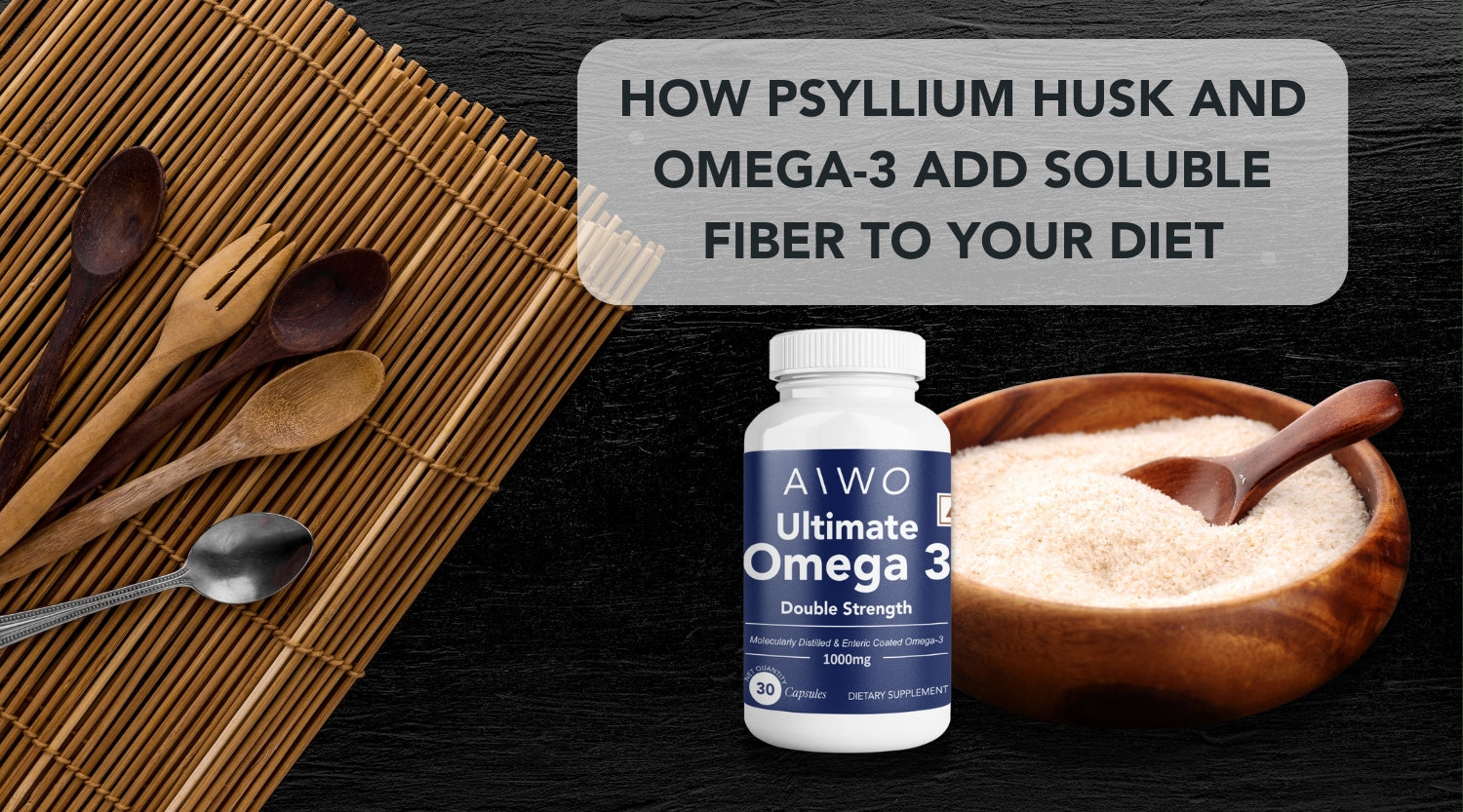
Unlocking Digestive Wellness: How Psyllium Husk and Omega-3 Enrich Your Diet with Soluble Fiber
Understanding Psyllium Husk: What It Is and Where It Comes From
The Basics of Psyllium Husk
Psyllium husk is a form of fiber made from the husks of Plantago ovata seeds. It's mainly found in India, where it grows naturally. This husk is known for its high soluble fiber content. Soluble fiber has unique benefits for our health. It can dissolve in water and turns into a gel during digestion. This process helps slow digestion and can aid in reducing cholesterol. Psyllium husk's benefits are tied to this form of fiber. It's used often as a dietary supplement for its health perks. People include it in smoothies, baking, or simply mix it with water.
The Journey from Psyllium Seeds to Husk
Psyllium husk begins its journey as tiny seeds. These come from the Plantago ovata plant, mainly grown in India. Harvested seeds are processed to remove the outer coating. This layer, known as the husk, is where all the fiber is. The husks are then dried, tested for purity, and packaged. As a result, we get the psyllium husk powder or whole husks. They are used in many fiber supplements and health products. The process ensures that the psyllium retains its high soluble fiber content. It's this fiber that aids digestive health and more.
Exploring the Health Benefits of Psyllium Husk
Soluble Fiber and Its Impact on Digestive Health
Psyllium husk is prized for its rich soluble fiber content, which is key for good digestion. When ingested, it forms a gel-like substance that sweeps through the intestines. This gel binds to waste, easing its passage and supporting regular bowel movements. Moreover, it can help to manage conditions like irritable bowel syndrome (IBS) by providing a gentle, bulking effect. By balancing bowel activity, it reduces discomfort and the risks of constipation and diarrhea. Regular intake of psyllium husk, therefore, plays a pivotal role in maintaining a healthy and functioning digestive system.
How Psyllium Husk Can Aid in Weight Management
Psyllium husk is a true ally in weight management. Its soluble fiber expands in your stomach. This creates a feeling of fullness, helping you to eat less. By curbing appetite, it reduces overall caloric intake. Including it in your diet can also slow digestion. Slower digestion means prolonged energy levels and less snacking. It's not a magic fix but used right, psyllium husk helps control weight.
The Role of Psyllium Husk in Preventing Heart Diseases
Psyllium husk is a prized soluble fiber, and it is known for helping with heart health. It works by lowering LDL cholesterol, which is often called 'bad' cholesterol. When LDL levels drop, the risk of heart diseases goes down too. The fiber in psyllium husk binds with bile acids. The body then uses cholesterol to replace these acids. This process can lower cholesterol numbers. By including psyllium husk in your diet, you support your heart. But remember to drink plenty of water. The husk needs it to work right in your body. For keeping your heart in good shape, psyllium husk could be a strong ally.
Best Practices for Incorporating Psyllium Husk into Your Diet
The Recommended Dosage of Psyllium Husk for Optimal Health
Including psyllium husk in your diet can be beneficial, but it's vital to get the dosage right. The recommended amount varies from person to person depending on factors like age, diet, and health objectives. Generally, adults should consume about 5-10 grams with at least one glass of water, once or twice a day. This can change based on individual tolerance and need. As with any fiber supplement, it's best to start with a lower dose and gradually increase to help your body adjust. Always ensure adequate hydration when taking psyllium husk.
Tips on Preparing Psyllium Husk for Consumption
Adding psyllium husk to your diet is easy. Start with a small amount, like a teaspoon. Mix it into a glass of water or juice. It thickens quickly, so drink promptly. You can also add it to smoothies or yogurt. For cooking, add it to dough or batter for added fiber. Just remember, when you increase fiber, also up your water intake.
Common Mistakes to Avoid When Using Psyllium Husk
- Avoiding Water: Psyllium husk absorbs liquid. Not drinking enough can lead to blockages.
- Excessive Use: Start with small amounts. Too much can upset your stomach.
- Ignoring Timing: Take it before meals for fullness or at bedtime for morning relief.
- Skipping Variety: Mix it with different foods and drinks to keep your diet interesting.
- Forgetting to Store Correctly: Keep it in a cool, dry place to maintain its effectiveness.
Share
